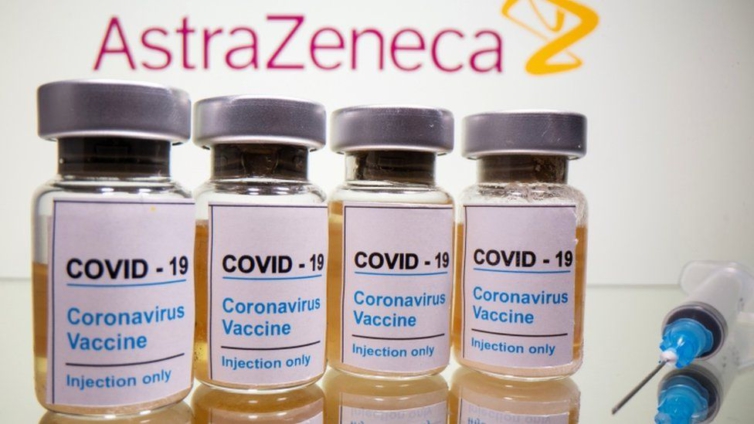Africa countries are facing potential delays to their vaccine rollouts because of global supply issues, according to both the World Health Organization (WHO) and the Africa Centres for Disease Control (CDC).
Meanwhile, both organisations have recommended that the AstraZeneca vaccine should continue to be used despite concerns having been raised over its safety.
How are African countries getting vaccines?
Deliveries of vaccine supplies under the Covax programme started in February, and most countries in Africa have signed up.
The programme – backed by the World Health Organization (WHO) and other multilateral bodies – aims to supply 600 million doses to Africa, enough to vaccinate at least 20% of the population.
The Covax initiative has so far delivered more than 60 million vaccine doses to 31 African countries, according to the Africa CDC.
Tanzania and Madagascar have said they have no plans to acquire vaccines, and Burundi says that at the moment, they don’t need vaccines.
The WHO says it is concerned that countries that received initial shipments under Covax could soon be running out of doses.
As of 25 March, Ghana had given out more than 470,000 of the 600,000 initial doses it received.
Rwanda – which received just under 400,000 doses – had administered more than 345,000.
“Limited stocks and supply bottlenecks are putting Covid-19 vaccines out of reach of many people in this region,” said Dr Matshidiso Moeti, the WHO Africa regional director.
The Africa CDC has pointed to the supply situation in India, where the big manufacturer, the Serum Institute of India, has said its production capacity is “very stressed.”
“The situation in India will impact on our ability to maintain our schedule…and it makes it very complicated,” says Africa CDC director Dr John Nkengasong.
He told journalists that the African Union was now exploring plans to secure Johnson & Johnson vaccines to supplement supplies from India that had been due under the Covax arrangement but which have now been temporarily halted.
What about AstraZeneca safety concerns?
The WHO has advised African nations to continue to use the AstraZeneca vaccine, which makes up the majority of doses supplied under the Covax scheme.
Health authorities in the UK and in Europe have been looking into unusual blood clots which have appeared in a handful of people given the jab.
“Based on current information, WHO considers that the benefits greatly outweigh the risks and that countries in Africa should continue to vaccinate people with the AstraZeneca vaccine.”
A few African nations had put the rollout of the AstraZeneca vaccine on hold as a precaution.
However, the WHO told the BBC that currently only Chad and Zimbabwe had declined to use it.
DR Congo, which had paused its vaccine rollout, will now go ahead using the AstraZeneca jab.
South Africa delayed the start of its programme using AstraZeneca for a different reason – because of concerns it may not be effective against a new variant.
It started vaccinating in February after receiving 80,000 doses of the Johnson & Johnson vaccine, which is administered as a single dose and has been shown to be effective against the variant.
What about vaccines from other sources?
Apart from Covax, some countries have made direct purchases from the manufacturers, or had donations from countries such as China, Russia, India and the United Arab Emirates (UAE).
China has donated its vaccines to 16 African countries, and India has donated to 15, according to UN data.
The United Arab Emirates also donated to a number of countries, mainly in north Africa.
Also, some African nations are now getting doses donated via an arrangement between the South African-based MTN mobile communications company and the African Union.
It’s part of $25m (£17.8m) plan to secure about seven million doses for Africa.
Are the vaccines enough?
The WHO says that so far, less than 2% of the total number of Covid vaccine doses administered globally have been in Africa.
John Nkengasong of the Africa Centres for Disease Control and Prevention (CDC) says the vaccines provided under the Covax scheme “will not get the pandemic out” of the continent without further assistance.
He says African countries will eventually need to vaccinate at least 60% of their populations, with his target for this year being 35%.
Recent research by the World Bank and the IMF estimates that Africa would need about to spend about $12bn on acquiring and distributing vaccines in order to get sufficient coverage to stop the virus spreading.
Latest Stories
-
NSS management assists Papao fire victims
10 mins -
EXPLAINER: Will dumsor end soon?
41 mins -
IMANI Africa takes on EC, accuses it of lying and publishing half truths
2 hours -
Manasseh Azure calls for investigation and prosecution of those responsible for GRA/SML contract
2 hours -
Kwesi Atuahene: Ghana’s health capital depends on HealthTech – Africa Center for Digital Transformation
2 hours -
13 signs your wife is planning on leaving you and you have no idea
2 hours -
IMANI Africa: Ghana’s EC’s dangerous and pathological conduct
3 hours -
If I speak there will be fire – Salah on Klopp row
3 hours -
Grieving after divorce is normal, but this particular kind of grief isn’t
3 hours -
10 beautifully unexpected ways husbands proposed to their wives
3 hours -
Reality zone with Vicky Wireko: Painting Ghana purple: Be aware, May is month of mental health awareness
4 hours -
Prof Opoku-Agyemang’s integrity is admirable – Inusah Fuseini
4 hours -
Your reign has been a beacon of wisdom – Alan Kyerematen tells Asantehene
4 hours -
Akufo-Addo’s driver wins La Dadekotopon NPP primary
4 hours -
Education Minister must channel resources to rebrand basic public schools into tackling critical needs – Minority
4 hours

